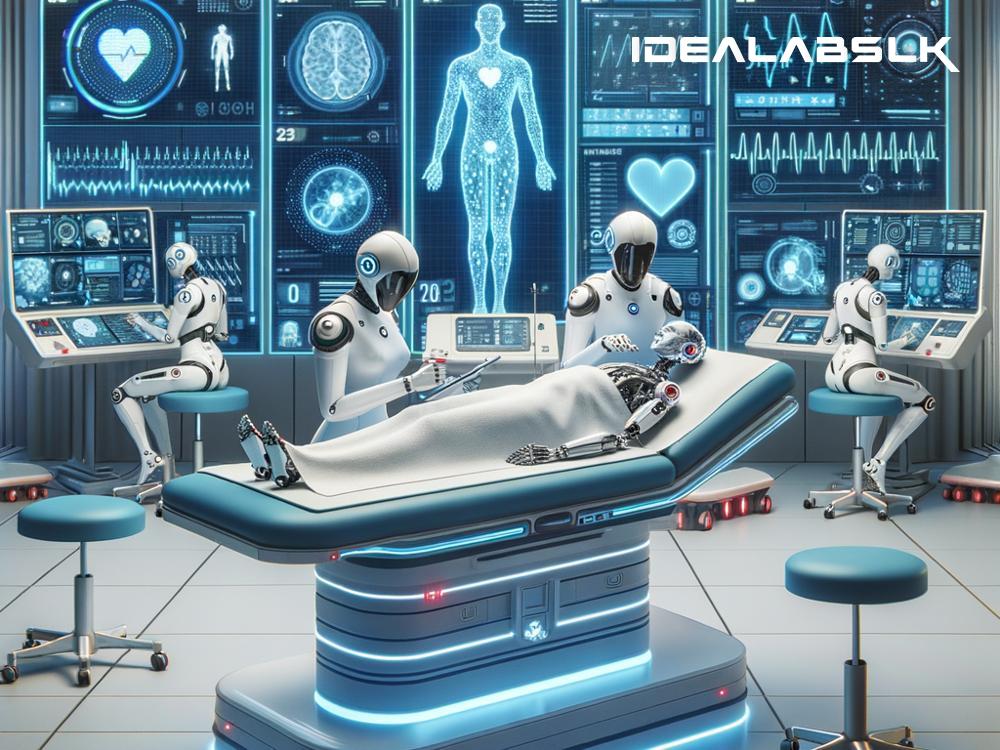The Future of Health: How Machine Learning is Changing the Game
Imagine a world where going to the doctor isn't scary because you're afraid of what they might find, but rather an exciting journey to ensure your body is running like a well-oiled machine. This futuristic scenario is becoming more of a reality thanks to a fascinating field in computer science known as machine learning. Now, if you're thinking, "Machine what now?" hang tight. We're going to unpack this together, and trust me, it's pretty cool stuff - especially when it comes to your health.
What's Machine Learning Anyway?
First off, let's break down what machine learning is. Imagine you're trying to teach your dog to fetch. Each time it brings back the ball, you give it a treat. Over time, the dog learns that bringing back the ball equals a yummy snack. Machine learning works somewhat similarly, but instead of teaching a dog, scientists are teaching computers how to recognize patterns and make decisions based on data - no treats required.
Now, what does this have to do with health diagnostics? A ton, actually.
Detecting Diseases Like Never Before
One of the biggest buzzes around machine learning in the health field is its ability to help diagnose diseases early and accurately. Think about diseases like cancer, diabetes, or heart disease, which can often go unnoticed until they're more serious. Machine learning algorithms can sift through mountains of health data, like scans, tests, and symptoms, much quicker and sometimes more accurately than human doctors can.
For instance, algorithms have been developed that can detect specific cancers in their early stages just by analyzing images like mammograms or skin scans. This means that people can get treated sooner, potentially saving lives. It's like having a super detective combing through all the clues in your body's data to find something out of the ordinary.
Personalized Treatment Plans
But machine learning doesn't stop at diagnosis. It's also paving the way for treatments that are tailored specifically to you. In the past, doctors had to rely on a one-size-fits-all approach for many treatments. But we're all different, and how our bodies respond to treatment can vary a lot.
Through machine learning, algorithms can analyze how people with specific characteristics respond to various treatments. This can help predict the most effective treatment plan for you based on your unique health profile. That means potentially fewer side effects and a higher chance of success in your treatment.
Revolutionizing Research and Preventative Care
Machine learning is also a powerhouse when it comes to health research and preventative care. It can analyze vast datasets to find connections that humans might overlook. For example, by analyzing genetic information from thousands of individuals, machine learning algorithms can identify genes associated with certain diseases, paving the way for groundbreaking preventative measures or treatments.
Moreover, these algorithms can monitor health trends in the population, predicting outbreaks of diseases before they happen. This enables a faster and more efficient response to public health emergencies, potentially saving even more lives.
The Future is Now
If all of this sounds like we're on the cusp of a health revolution, it’s because we are. But with great power comes great responsibility. There are ethical and privacy concerns when it comes to handling personal health data that need to be addressed. As we navigate these challenges, the focus must remain on improving patient care and outcomes.
Simplifying the Complex
In conclusion, machine learning is bringing a level of precision to health diagnostics and treatment that was unimaginable just a few decades ago. It's like having a super-smart assistant that's helping doctors to make better, faster decisions and offering you a more personalized healthcare experience.
While much of the technical stuff behind machine learning can get complex, the goal is simple: to make staying healthy easier and more effective for everyone. As technology continues to evolve, the hope is that diagnosing and treating diseases will become less like a daunting task and more like a routine check-up - quicker, less invasive, and, most importantly, available to everyone, everywhere.
The journey into the future of health diagnostics through machine learning is just beginning. It promises a world where diseases are detected early, treatments are personalized, and everyone has a better chance at a healthier life. Now that's something to look forward to.

